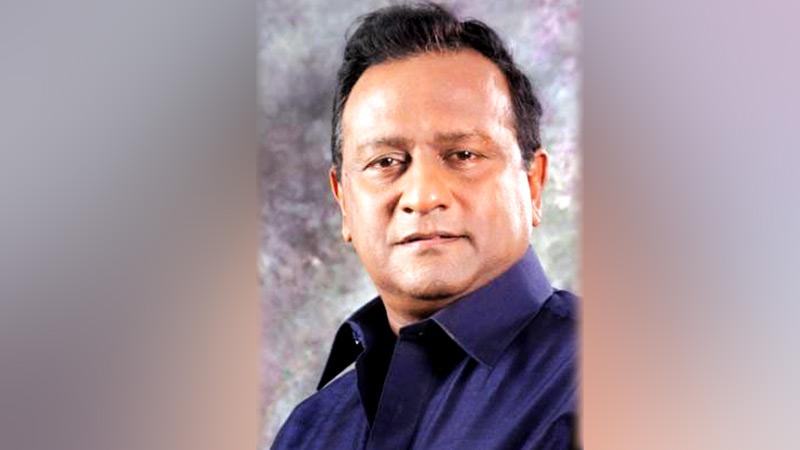
Rear Admiral Dr. Sarath Weerasekara’s move to shift from Digamadulla to Colombo was indeed timely to help implement President Gotabaya Rajapaksa’s policy statement, the ‘Vistas of Prosperity and Splendour’ meant to ward off the country’s ills and herald a new era.
At the invitation of the then President Mahinda Rajapaksa, he contested Digamadulla in 2010 and came first overtaking his rivals and was appointed Deputy Minister of Labour and Labour Relations. His vibrant voice echoed in Parliament the misery of the Digamadulla peasantry.
To improve the lot of the Digamadulla voters, he launched rural electrification, water supply and road development projects under the auspices of the Deyata Kirula development drive by the Mahinda Rajapaksa Government.
He is a pioneer organiser of the Viyathmaga and Eliya to ensure the victory of Gotabaya Rajapaksa as the President of the country. To protect the country’s territorial integrity and sovereignty, he took a keen interest in setting up the National War Heroes Collective, National Organisations Convention and Global Sri Lankan Forum.
When the human rights violation issue moved to the international arena, Weerasekara debunked the pseudo human rights violation allegations at the UNHRC engineered by the so-called ‘peace advocates’.
While the Yahapalana Government co-sponsored the 30/1 Resolution at the UNHRC as masterminded by the pro-LTTE Tamil diaspora, Weerasekara fired the first salvo in defence of the War Heroes and political leadership.
Politicians have agendas mostly to suit their interests, but Weerasekara’s agenda is based on his love for the country, its territorial integrity and eternal peace for all communities to live in harmony. He is the recipient of national honours, Vishista Sewa Vibhushana, Rana Wickrama, Uththama Sewa and Deerga Sewa for his gallantry.
Weerasekara is a principled politician, the only one who voted against the now controversial 19th Amendment.
An unrelenting crusader, Weerasekara has many claims to his credit – patriot, human rights activist, defender of the Armed Forces, politician and lover of arts. Perhaps, LTTE terrorists would have overrun and decimated the entire East, had it not been for his sharp surveillance as an indefatigable fighter to defend Sri Lanka’s sovereignty.
His Alma Mater, Ananda College would have baptised him in the fire of nationalism and its cadetting would have laid the foundation for his future Armed Forces career.
Despite being selected for university admission in the science stream, he took a decisive step to join the Navy where in later years, he excelled in athletics and sports.
Having joined the Navy in 1971, he held high posts, such as Commander of Northern Naval Command, Commander of Eastern Naval Command, Commander of Southern Naval Command, Director General Projects and Planning, Director General Naval Welfare and Director General, Operations in the Navy before reaching the topmost hierarchy, Deputy Chief of Staff. He received training abroad at Naval and Maritime Academy, India, Rhodes Island Naval Staff College, USA, National Defence College, India, Czechoslovakia, completed Fast Attack Craft Course in Israel and Pusan in South Korea. He has widely travelled and his itinerary included countries, such as England, China, Singapore, Pakistan and Serbia.
When LTTE Sea Tigers posed a formidable threat to the country’s territorial integrity, Weerasekara as the First Commander of the Fast Attack Craft Squadron threw a security dragnet overcoming enemy resistance and held the Navy’s authority over the sea.
The Pooneryn rescue operation which saved the lives of over 400 soldiers is testament to his gallantry. In recognition of his bravery, he was bestowed the National honour Weera Wickrema.
With the advent of the Mahinda Rajapaksa Government in 2005, Weerasekara was appointed Director General of the Civil Defence force on the recommendation of the then Defence Secretary Gotabaya Rajapaksa.
A 19,400 strong Home Guard was expanded to a well-trained 42,500 defensive outfit to protect the ‘border villages’ from marauding LTTE terrorists.
Weerasekara, a lover of art despite his busy schedule, produced his maiden film Gamani, based on the story of Home Guards, the Gramarakshakas in the common parlance. His second film Sri Siddha based on the story of Vijayabahu, the Great is to be screened in the near future.
With his natural propensity for literature, he has authored several books such as Sagaraya saha Gehaniya, Noothana Paravi Sandeshaya and Thotagamuwe Sri Rahula.
